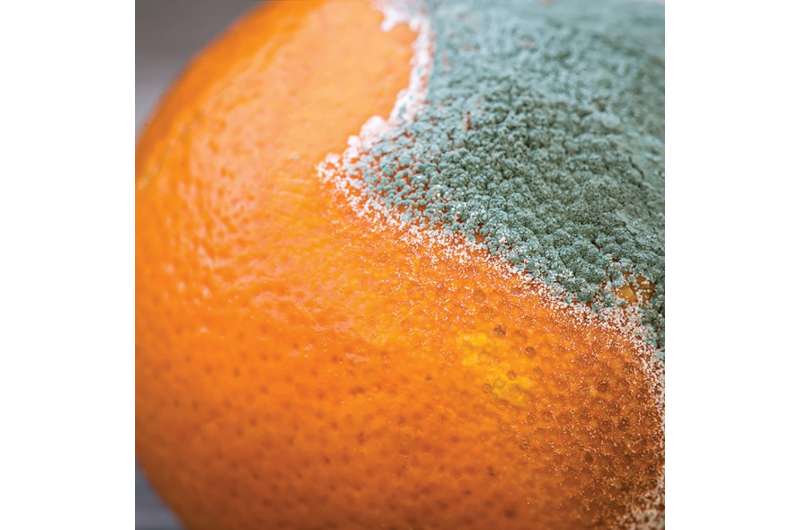Is turmeric-film packaging the future for supermarket shelves?

Researchers in Malaysia have developed a biopolymer film incorporating turmeric oil that stops the growth of a common food fungus and degrades well in soil. The film could provide an environmentally friendly way to extend food shelf life.
Turmeric is well known for its anti-microbial properties. Its bright orange root has been used in South Asian traditional medicine for thousands of years. Universiti Teknologi MARA (UiTM) chemical engineer Junaidah Jai and colleagues were interested to see if they could use turmeric to stop the growth of the fungus Aspergillus niger, a common food contaminant.
They added varying amounts of turmeric oil to biopolymer films made from cassava starch, glycerol and carboxymethyl-cellulose. Different thicknesses of the films were coated onto brown packaging paper, which was then incubated with A. niger spores. The researchers found that the films were effective, with larger amounts of turmeric oil in thicker films being better at inhibiting A. niger growth.
The packaging samples were also soaked in water to simulate contact with food moisture. The researchers measured the amounts of antimicrobial compounds released from the film into the water using ultraviolet spectrometry. They found that more antimicrobial compounds were released from thicker films. However, the thickest films released antimicrobial compounds too slowly, and the thinnest ones released them too quickly, making them ineffective against microorganisms that take a long time to start growing.
"The right combination of turmeric oil and film thickness are essential for inhibiting microorganisms that cause food spoilage,"Jai explains."The optimal combination will also vary based on the texture and shape of food we are trying to protect."
The researchers also tested the coated packaging's biodegradability by burying samples in soil that was exposed to rain and sun. They found that the packaging degraded more slowly as the turmeric oil content and film thickness increased, as the higher oil content kept soil microbes away. This continued up until the highest turmeric oil volumes, when degradation sped up again. The researchers suggest the highest oil volumes cause faster biodegradation due to changes they cause in the film's properties; more water is absorbed, allowing more soil microbes to penetrate the package and degrade it.
"This packaging could be a green alternative to keep food fresh for longer," says Alia Mustapha, a researcher at UiTM.
The team plans to next conduct sensory tests to evaluate consumer acceptance for the packaging and the thin layer of turmeric oil that will cover food surfaces. Jai says they are looking for a collaborator to commercialize the product.
More information: F.A. Mustapha et al. Response surface methodology analysis towards biodegradability and antimicrobial activity of biopolymer film containing turmeric oil against Aspergillus niger, Food Control (2018). DOI: 10.1016/j.foodcont.2018.12.042
Provided by Universiti Teknologi MARA (UiTM)


















